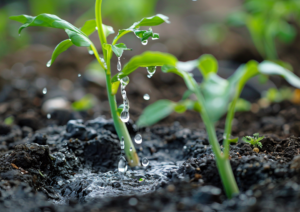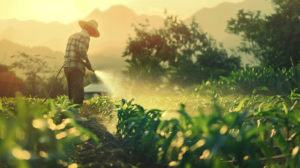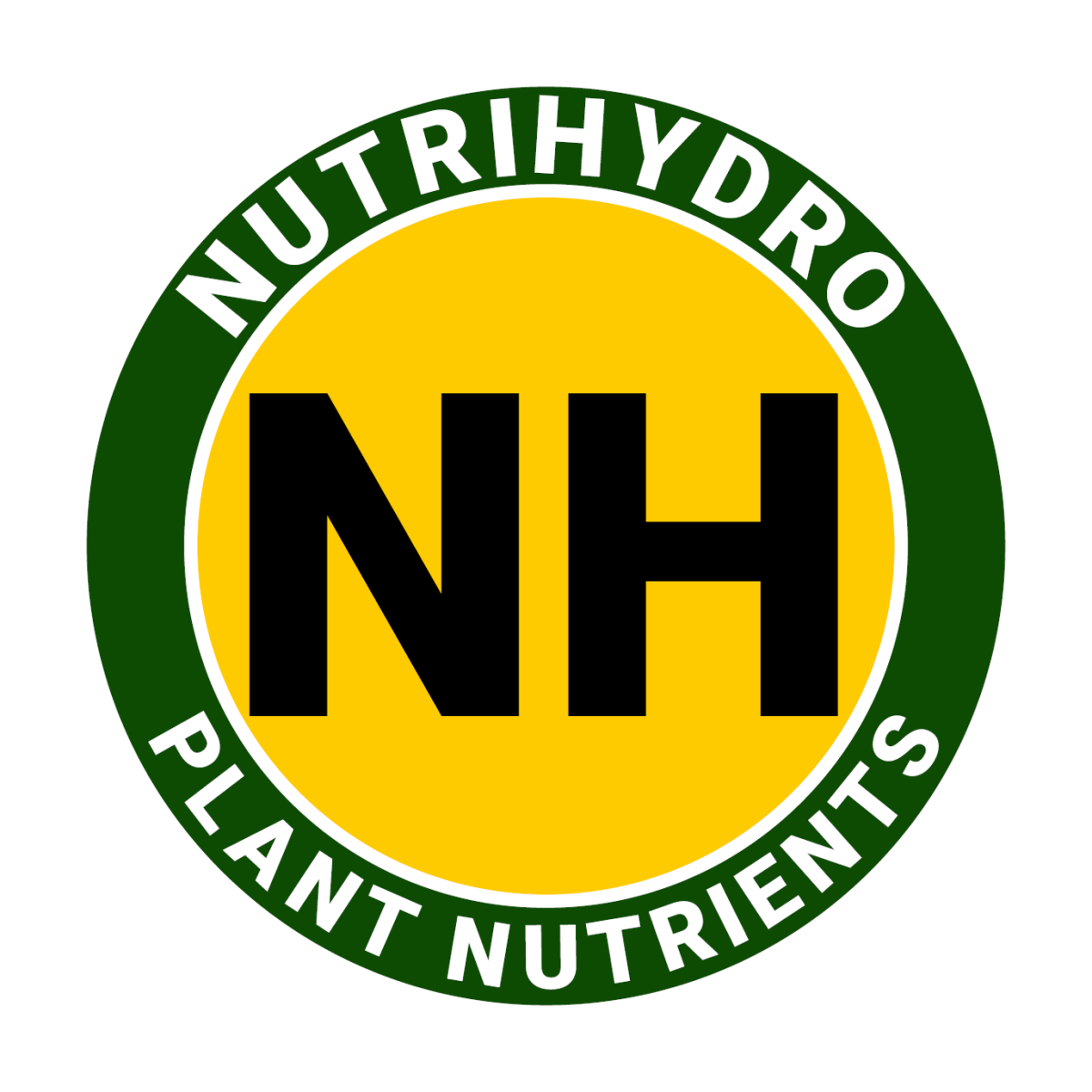How Precision Drip Is Transforming Agriculture
How Precision Drip is Transforming Agriculture
In this generation, sustainable agricultural practices are more in demand than ever. Drip irrigation is a remarkable example of innovation, leading toward a more efficient and environmentally friendly future in global agriculture. Despite its simple mechanism, this technology is bringing about significant changes in how we grow food, conserve water, and protect our planet.
 Drip irrigation is a method that allows water to drip slowly to the roots of plants, either from above the soil surface or buried below the surface. It minimizes evaporation and runoff which ensures that water is used with unprecedented efficiency. At its core, drip irrigation embodies the principles of precision agriculture—delivering the right amount of water and nutrients at the right time, directly to the plant’s root zone. It saves up to 45-57% more water, making it highly valuable in regions with water scarcity and drought conditions [1].
Drip irrigation is a method that allows water to drip slowly to the roots of plants, either from above the soil surface or buried below the surface. It minimizes evaporation and runoff which ensures that water is used with unprecedented efficiency. At its core, drip irrigation embodies the principles of precision agriculture—delivering the right amount of water and nutrients at the right time, directly to the plant’s root zone. It saves up to 45-57% more water, making it highly valuable in regions with water scarcity and drought conditions [1].
In a written journal, Drip Irrigation System, Karishma highlights the low-pressure, low-volume approach of drip irrigation as a key to supplying water and nutrients directly to plant roots [2]. By allowing water to drip slowly, either above or below the soil surface, drip irrigation not only conserves water but also prevents soil erosion and decreases the need for fertilizers, making it an ideal solution for home landscapes and agricultural fields alike.
The efficacy of drip irrigation extends beyond water conservation. It encompasses a holistic approach to farming that includes significant improvements in yield and crop health. A significant study by Palada et al. has examined the implementation and impact of drip irrigation systems in several Southeast Asian countries, including the Philippines. The research shows that in the Philippines, drip irrigation has resulted in an impressive 35% increase in average vegetable yields, despite the dry season’s unusually high rainfall. This highlights the system’s effectiveness in diverse climatic conditions and demonstrates its contribution to enhancing food security and increasing farmers’ incomes [3].
In line with this, NutriHydro embraced a progressive approach to sustainable farming by introducing a cutting-edge drip irrigation system in its farm operations. This transition represents a significant departure from conventional irrigation methods, intending to improve water usage efficiency and achieve higher crop yields and quality. Through this innovative step, NutriHydro is poised to lead by example in the agricultural sector, highlighting the tangible advantages and successful integration of advanced irrigation technology with traditional farming practices.
 The role of drip irrigation in shaping a sustainable agricultural future becomes increasingly important as we move forward. Drip irrigation is not only an agrarian innovation, but a shift towards responsible stewardship of our planet’s most valuable resources, by aligning water use with crop needs rather than the limitations of traditional irrigation methods. The green revolution powered by drip irrigation is imperative in the face of climate change and a growing global population. As more farmers and agricultural policymakers adopt this technology, we are moving closer to a world where sustainable farming practices are the norm, not the exception. Drip irrigation is not just about watering plants; it is about nurturing the future of our planet, one drop at a time.
The role of drip irrigation in shaping a sustainable agricultural future becomes increasingly important as we move forward. Drip irrigation is not only an agrarian innovation, but a shift towards responsible stewardship of our planet’s most valuable resources, by aligning water use with crop needs rather than the limitations of traditional irrigation methods. The green revolution powered by drip irrigation is imperative in the face of climate change and a growing global population. As more farmers and agricultural policymakers adopt this technology, we are moving closer to a world where sustainable farming practices are the norm, not the exception. Drip irrigation is not just about watering plants; it is about nurturing the future of our planet, one drop at a time.
[1] Aziz, M., Rizvi, S. A., Iqbal, M., Syed, S., Ashraf, M., Anwer, S., Usman, M., Tahir, N., Khan, A., Asghar, S., & Akhtar, J. (2021). A sustainable irrigation system for small landholdings of rainfed Punjab, Pakistan. Sustainability (Basel), 13(20), 11178. https://doi.org/10.3390/su132011178
[2] Karishma, S. (2021, August 04). Drip Irrigation System. Irrigation and Drainage Systems Engineering, 10, 277.
[3] Palada, M., Mercado, A., Roberts, M., Ella, V. B., Reyes, M. R., Susila, A. D., Ha, D. T., Wu, D., & Bhattarai, M. (2011). Farmers’ experiences with low-pressure drip irrigation for vegetable production in Southeast Asia and the Pacific. Acta Horticulturae, 921, 49–56. https://doi.org/10.17660/actahortic.2011.921.5
Author

Honey Joyce Daz

Honey Joyce Daz
NutriHydro is a manufacturer of plant nutrients based in the Philippines. They are known to grow the healthiest, heaviest, and largest lettuce in the country. NutriHydro products are available to purchase from the following e-commerce platforms.
Lazada: bit.ly/3asMYXN
Shopee: bit.ly/3nRJX6Z
Basilyard: bit.ly/346Kklw
NutriHdyro Website: bit.ly/434MoY6




